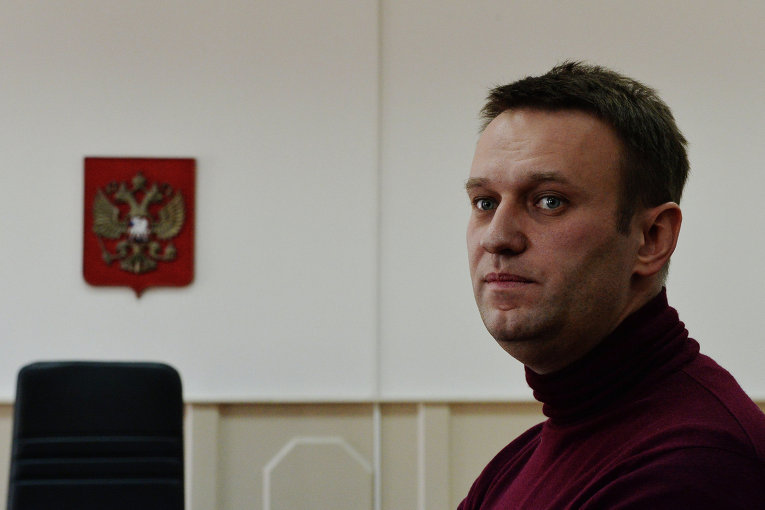MOSCOW, June 23 (RAPSI) – Opposition politician Alexei Navalny said on his website that the Federal Migration Service of Russia has refused to issue him a foreign travel passport because of his alleged crimes.
He attached a photo of the service’s letter, which says that he has been “denied the issue of a passport for travel outside the Russian Federation and for entering the Russian Federation” because of his criminal record.
The service cites a provision under which a Russian’s right to foreign travel can be limited until an outstanding prison term is served in full (Article 15 of the Law on the Procedure for Exit from and Entry into Russia).
“Tomorrow a German judge will issue a EUR 1,000 fine to me for failing to attend a court hearing because today I received a letter saying that my passport application has been denied,” Navalny writes.
Navalny was expected to attend the June 24 trial of Sergei Maksimov, a German citizen, who was charged in Germany with hacking Alexey Navalny’s email and Twitter accounts in June 2012.
The media write that Maksimov, 41, allegedly claims to be Hacker Hell who presumably hacked about 100 emails, including Navalny’s emails. After the hacker published Navalny’s correspondence with Kirov Region governor Nikita Belykh in the summer of 2012, Navalny was charged with various economic crimes.
Navalny said in his blog that the Bonn prosecutor’s office opened a case against Maksimov after he and his supporters had informed German law enforcement authorities about the hacking. According to Navalny, German police searched Maksimov’s apartment in 2013, where they allegedly seized a computer and discs and other data storage devices that were signed “Hacker Hell” and contained Navalny’s emails.
Alexei Navalny is the leader of the Party of Progress. He finished second in the 2013 Moscow mayoral race and is the author of one of the more popular political blogs, which was banned for promoting unauthorized public protests. He has been given two suspended sentences for embezzlement – five years in the Kirovles case and 3.5 years in a recent Yves Rocher Vostok case.



